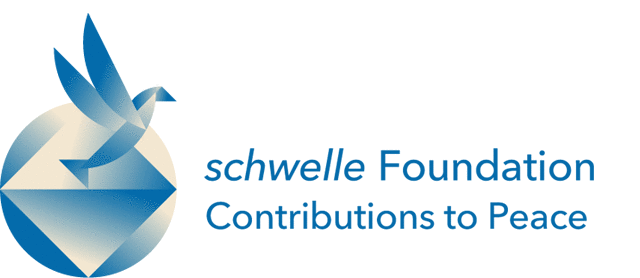With bereavement, one has to take a sober look at the painful reality of two peoples living on this strip of land. I share my pain with my Palestinian brother and many other bereaved Palestinian parents
We are going through difficult days. Today was a hard day. Yesterday was, too, as was two days ago, and tomorrow probably will be. Most sadly, the press, the public and the legal advisers struggle to look at reality through the narrow keyhole of the last news event, and they struggle to rise above it.
- Haifa municipality seeks to block launch of a book on the Israeli-Palestinian conflict
- We find it easy to accept war, peace not so much
- Who will we be after the war in Gaza is over?
This week, the Haifa municipality canceled an event marking the book launch of the Hebrew translation of "Apeirogon" by Colum McCann. The book is based on my story and that of my brother in bereavement, Bassam Aramin.Playvolume00:00/00:00TruvidfullScreen
We both lost our daughters to the conflict, and we are both active in the Israeli-Palestinian Parents Circle – Families Forum. Some 600 bereaved families belong to the forum. We all believe that the occupation took our children, that the occupation must end, and that we can and must live here together with mutual dignity.
The way in which McCann managed to get into our most concealed details and knew how to tell the story of our grief and our bereavement in the most human, delicate, thoughtful, compassionate and clear way is no less than amazing. I never conceived that such a thing was at all possible. And the Haifa municipality wants to deny me the opportunity to talk about it.
You don't argue with pain. I will never speak out against other bereaved families, whose pain and anger, which passes through their minds, I know so well. But I am also a bereaved father, and I also have a right to talk and express my pain publicly. Bereavement has many faces, and I ask to have mine heard. And bereavement, I believe, cannot be a reason to shut up others. With bereavement, one has to take a sober look at the painful reality of two peoples living on this strip of land. I share my pain with my Palestinian brother Bassam Aramin and many other bereaved Palestinian parents.
The cry of the bereaved is a horrific cry of unending, tremendous and terrible pain. You feel it 24 hours a day, 60 seconds every minute, without rest or a break. It's not only the cry of someone whose foot was run over or whose toy was taken away. It's not the cry of economic distress or social injustice, or one of shame and humiliation about some other injustice, outrageous evil, indifference and arrogance, about infuriating corruption or extravagant stupidity.
The cry of bereavement is all of these combined – and even more. The pain of someone who lost a loved one in general, and in a conflict in particular, has the power of nuclear energy. This pain can explode with atomic force. It is an Arab pain. It is a Jewish pain. And it is a human pain. These days, we see the result of this pain erupting in front of our very eyes.
With a broken heart and great sadness, I heard about Haifa's and its legal adviser's surrender to the pressure of bereaved families, of which the Btsalmo organization made manipulative, cynical, malicious and divisive use.
Legal advice, with all due respect, can sometimes be exploited for evil, legitimizing crimes and silencing people. But a healthy society is one that provides a stage to a variety of voices, sometimes contradictory ones – a society in which justice and freedom of expression go hand in hand.
At my first forum ceremony, I said the following, which is still relevant: "I don't need Memorial Day to remember my Smadar. I remember her all the time, 365 days a year, 24 hours a day, 60 seconds a minute. Without a break, without rest, for 20 long and cursed years, and time doesn't heal the wound, and the insufferable ease of going on remains a strange and unsolved riddle."
When Yitzhak Frankenthal, founder of the bereaved families' forum, recruited me to 25 years ago, for the first time in my life I was exposed to the very existence of the other side – I'm ashamed to say that I was 47 when I saw for the first time Palestinians as normal human beings, just like me, with the same pain, the same tears and the same dreams. For the first time, I was exposed to the story, the pain and the anger, and to the nobility and humanity of what we call "the other side."
The highlight of this journey was meeting my brother, the "terrorist" who sat in an Israeli prison for seven years, the peace fighter Bassam Aramin, who lost his daughter Abir and wrote us the most moving words that only someone who shares the same pain with us can write and understand.
I define my camps totally differently than I did 26 years ago. For me, the line dividing the sides today isn't between Arabs and Israelis or between Jews and Muslims. Today, the dividing line is between those who want peace and are prepared to pay the price for it, and the rest. They are the other side.
And I regret that today, the other side is the corrupt group of politicians and generals that leads us and behaves like a gang of mafia dons, war criminals playing a ping-pong of blood between them, sowing hatred and reaping death, and trying to deny anyone who deviates from their line the opportunity to speak out.

![[Translate to English:]](/fileadmin/user_upload/Bilder_Dokumente/Meldungen/Newsletter/2024/Parents_circle.jpg)

